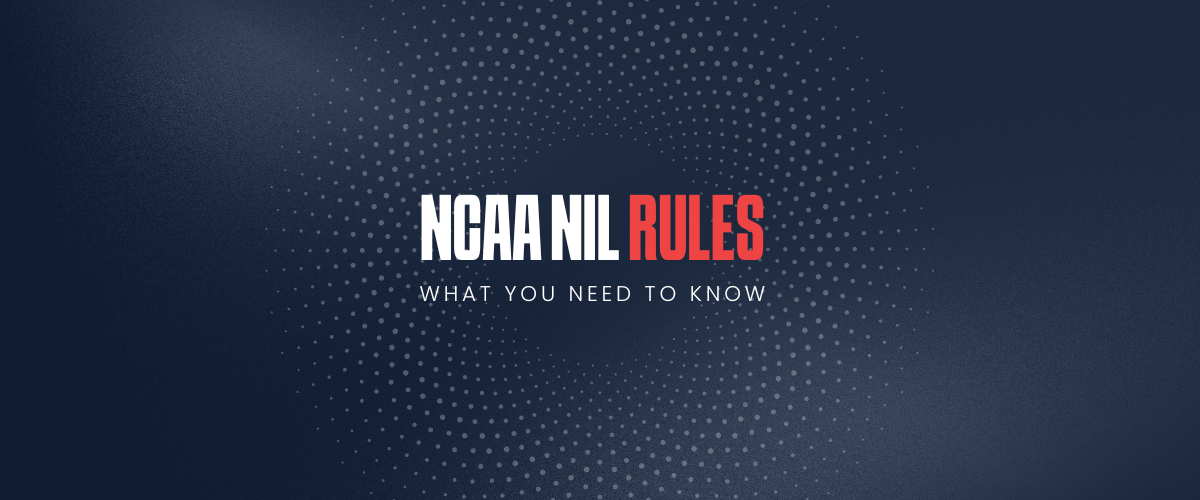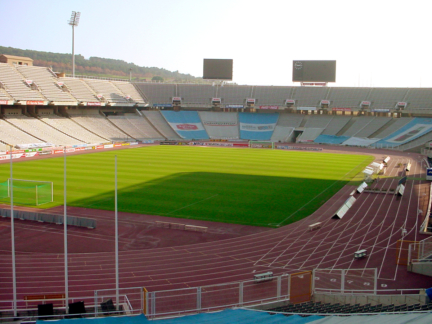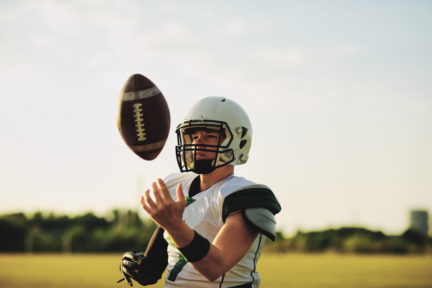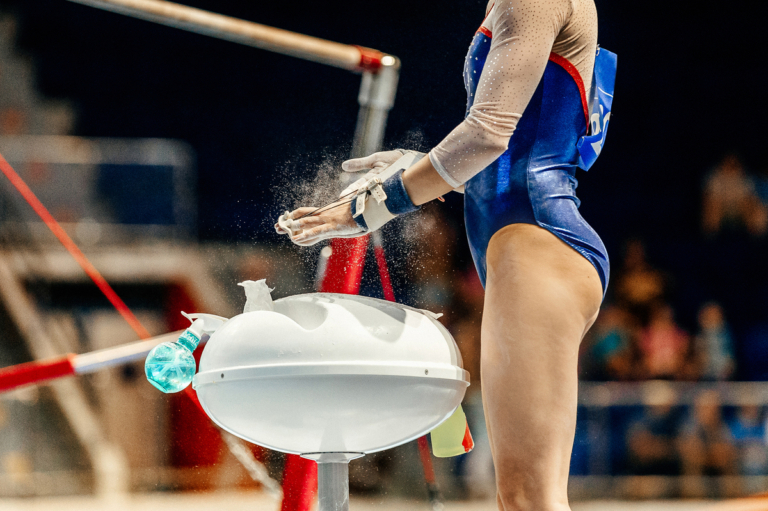The world of college athletics has changed a lot with NIL rules. Now, student-athletes can make money from their name, image, and likeness. NCAA Wrestling Preview 25 26

This change has opened up new chances and problems for colleges, athletes, and the NCAA. It’s important to understand these new regulations to get through the complex world of college sports.
These rules can really affect the careers of student-athletes and how colleges work. So, knowing the basics of NIL rules and what they mean is key. NCAA Xc National Champions
What Are NIL Rights in College Athletics?
Understanding NIL rights is key for student-athletes and colleges today. NIL stands for Name, Image, and Likeness. It means the right to control how your identity is used for money. New Era Blacksburg
Definition of Name, Image, and Likeness
Name, Image, and Likeness are the three main parts of your identity for business use. “Name” is your legal name or any nickname you’re known by. “Image” is your likeness, like photos or visual looks. “Likeness” is your unique persona or traits.

The Fundamental Shift in College Sports
The arrival of NIL rights has changed college sports a lot. Now, student-athletes can make money from their name, image, and likeness. This change stems from new laws and growing acceptance of athlete compensation. Colleges and athletes must follow the NCAA NIL rules to stay legal while making money.
NIL rights have big effects on college sports. They change recruiting, team relationships, and the competition. It’s important for everyone to understand these changes to fit into the new college sports world. Nc Brantmeier Ironic Win
The History Behind NCAA NIL Rules
The story of NCAA NIL rules is one of slow change. It was influenced by legal battles and changing public views. For years, the NCAA stuck to a strict no-compensation policy for athletes.
Traditional Amateurism Model
The NCAA’s old rules said athletes shouldn’t make money from sports. This was to keep college sports different from pro sports. But, as college sports became more commercial, these rules were questioned.
Key Court Cases That Changed Everything
O’Bannon v. NCAA
O’Bannon v. NCAA was a lawsuit by UCLA’s Ed O’Bannon. He argued the NCAA shouldn’t use his likeness in games. This case led to changes in athlete compensation rules.
Alston v. NCAA
Alston v. NCAA also challenged athlete compensation rules. Shawne Alston, a University of Oregon athlete, fought for education benefits. The Supreme Court’s ruling was a big step towards allowing more athlete compensation.
These cases, along with others, have pushed the NCAA to update its NIL rules. They’ve moved towards allowing more compensation for athletes. NCAA All Stars Spengler
What Led the NCAA to Pass Interim NIL Rules
The NCAA faced growing pressure from many sides. This involved state legislatures, the courts, and organizations advocating for athletes. This pressure led to a big change in how the NCAA handles Name, Image, and Likeness (NIL) for college athletes.
State Legislation Pressure
State laws were a big push for the NCAA to change its NIL rules. Many states passed laws that let college athletes earn from their NIL without NCAA penalties. This made it hard for the NCAA to deal with different laws in each state.
Supreme Court Decisions
Recent Supreme Court decisions also played a role. These decisions showed the NCAA needed to update its rules to fit the changing legal world.
Athlete Advocacy Movements
Athlete advocacy groups were also key. They spoke out against the NCAA’s old rules and pushed for more rights. Their efforts, along with state laws and court decisions, made the public see the NCAA in a new light.
| Factor | Description | Impact |
|---|---|---|
| State Legislation | States passing laws allowing NIL compensation | Forced NCAA to reconsider national policy |
| Supreme Court Decisions | Rulings on NCAA restrictions and athlete compensation | Highlighted need for NCAA policy adaptation |
| Athlete Advocacy | Groups pushing for athlete compensation rights | Galvanized public opinion against NCAA |
Together, these factors led to the NCAA’s new NIL rules. This change is a big step for college sports.
Current NCAA NIL Rules Explained in Detail
The world of college sports has changed a lot. New NCAA NIL rules have come in. These rules change how student-athletes can use their name, image, and likeness. NCAA Mens Hockey 2025
Core Principles of the Policy
The NCAA’s NIL policy focuses on keeping college sports fair and true to their spirit. Fairness and equity are key. They make sure all athletes have the same chances without losing the amateur spirit of college sports.
Permitted Activities Under NIL Rules
Student-athletes can now make money in many ways. They can:
- Do social media endorsements and influencer marketing
- Sell merchandise and get apparel deals
- Do appearances, camps, and autograph sessions
- Start their own businesses and ventures
These options let athletes use their fame and skills to earn money. It opens up new ways for them to make money.
Prohibited Activities and Restrictions
Even though athletes can make money, there are things they can’t do. They can’t get paid to play, can’t get paid based on how well they play, and can’t do things that might help them get recruited. It’s important for athletes and colleges to know these rules to follow NCAA rules.
The NCAA wants to make sure athletes can make money from their fame. But they also want to keep college sports true to their amateur roots.
State-by-State NIL Regulations
NIL laws vary across states, making it hard for student-athletes and colleges to keep up. The NCAA lets athletes earn from their name, image, and likeness. But, each state has its own rules for these new chances.
States with Established NIL Laws
Some states have laws for NIL rights. For example, California and Florida protect athletes’ right to earn from their NIL. These laws differ but all aim to stop unfair pay for sports.
Differences in State Regulations
States like Alabama and Arkansas are more open, while Nebraska is stricter. Knowing these differences is key for athletes and colleges in many states. Some states might have different rules for what endorsements are allowed.
Navigating Multi-State Compliance
For colleges and athletes in many states, following the strictest rules is safest. But, it might also mean missing out on chances in more open states. They must keep up with changing laws to use NIL rights wisely.
Understanding NIL laws is crucial. As more states make their own rules, knowing these will become even more important.
How Student-Athletes Can Monetize Their NIL
The NCAA has changed its NIL rules. Now, college athletes can make money from their name, image, and likeness. They are finding new ways to use their fame to earn.
Social Media Endorsements and Influencer Marketing
Social media is a big chance for athletes. They can work with brands to promote products. For example, a famous football player might team up with a sports brand on Instagram.
- Build a strong social media presence by creating engaging content.
- Identify brands that align with your personal brand and values.
- Negotiate contracts that include specific requirements for content creation and promotion.
Merchandise and Apparel Opportunities
Athletes can also sell merchandise like jerseys and hats. They can sell online or at events.
For example, a basketball star might sell merchandise online or at autograph sessions.
Appearances, Camps, and Autograph Sessions
Another good way to make money is by attending events. Athletes can meet fans and earn income.
- Host a sports camp or clinic to teach young athletes new skills.
- Participate in autograph sessions or meet-and-greets with fans.
- Make appearances at events, such as charity functions or brand promotions.
Entrepreneurial Ventures and Business Creation
Some athletes start their own businesses. They might open a sports training facility or launch a clothing line.
For instance, a gymnast could open a fitness studio or start a line of athletic wear.
By exploring these options, athletes can make the most of their NIL. They can build a strong personal brand.
NIL Collectives: The New Power Players
The rise of NIL collectives has changed college sports. Now, athletes can make money from their name, image, and likeness. These groups are key in college sports today, affecting how athletes get paid and how teams work together.
What Are NIL Collectives?
NIL collectives are groups that help college athletes make money. They work with universities and sponsors to find deals that follow NCAA rules. This way, athletes can earn from their fame.
How Collectives Operate Within NCAA Rules
NIL collectives stick to NCAA rules to keep sports fair. They help athletes with things like endorsements and merchandise sales. This way, they make sure everything is okay with the NCAA.
Impact on Recruiting and Team Dynamics
NIL collectives have changed college sports recruiting. Top athletes look at a school’s collective when deciding where to go. This gives some schools an edge, changing how teams work together.
As things keep changing, it’s important to understand NIL collectives. This is true for athletes, universities, and fans.
Compliance Requirements for NCAA Athletes Under NIL Rules
It’s key for NCAA athletes to know the rules on Name, Image, and Likeness (NIL). The rules keep changing, so athletes need to keep up. This helps them stay in good shape with the NCAA.
Disclosure Obligations and Reporting
Athletes must follow rules on sharing NIL deals with their schools. They need to tell their schools about the deals, how much they get paid, and other important stuff. It’s important to report on time and correctly to avoid trouble.
School-Specific Policies and Restrictions
There are also rules set by each school. These rules might be stricter than NCAA ones. Athletes should know their school’s rules to follow them.
Working with University Compliance Offices
Athletes should team up with their school’s compliance offices. These offices help with the rules, reporting, and making sure NIL activities are okay. They guide athletes on what’s allowed.
Following these rules helps NCAA athletes use NIL deals wisely. It keeps them eligible and respected.
Financial and Tax Implications of NIL Deals
The NCAA’s NIL policy change has brought new challenges for student-athletes. They now face financial and tax issues with their earnings. It’s important to understand the impact of these deals.
Tax Obligations for Student-Athletes
Student-athletes must think about taxes on their NIL earnings. The IRS says this income is taxable and must be reported. Athletes may need to file additional tax forms, like the Form 1040. They might also have to make estimated tax payments to avoid penalties.
Financial Literacy Resources
There are many resources to help athletes manage their finances. NCAA schools and outside groups offer financial advice. Financial literacy programs help athletes make smart choices with their money.
Long-term Financial Planning Considerations
Planning for the future is key for student-athletes with NIL earnings. They should look into tax-deferred savings options and how NIL income affects scholarships. Athletes need to be ready for income changes and plan ahead.
| Financial Consideration | Description | Action Required |
|---|---|---|
| Tax Reporting | Reporting NIL income on tax returns | File Form 1040, make estimated tax payments |
| Financial Counseling | Utilizing financial literacy resources | Seek out school or external financial counseling |
| Long-term Planning | Planning for the future with NIL earnings | Consider tax-deferred savings, assess impact on financial aid |
The Impact of NIL Rules on College Sports Ecosystem
NCAA NIL rules have changed college sports a lot. They affect recruiting, team dynamics, money, and fairness between genders.
Changes in Recruiting Landscape
Now, top recruits can make money from their fame. This makes some schools more appealing because of the chance for NIL deals. It’s now a big competition to get the best players.
Effects on Team Dynamics and Locker Room Culture
NIL deals can cause problems in teams. Athletes with big deals might act differently with teammates. But, it can also make everyone work harder.
Financial Implications for Different Sports Programs
Money matters differently for each sport. Football and basketball can make more money from NIL deals. This might make other sports seem less valuable.
Gender Equity Considerations in NIL Opportunities
It’s important to be fair to female athletes in NIL. Groups are trying to help female athletes make money too. This keeps college sports fair for everyone.
The effects of NCAA NIL rules are deep and varied. As things change, it’s key for everyone to keep an eye on it. This way, college sports can stay fair and competitive for all.
Controversies and Challenges in the NIL Era
The NIL rules have brought up a lot of debate and concerns in college sports. These rules let student-athletes make money from their name, image, and likeness. But, they also bring a lot of challenges.
Pay-for-Play Concerns and Recruitment Inducements
One big worry is pay-for-play. This means athletes might get paid for how well they play, not just for their NIL. The NCAA fears this could make athletes focus too much on money, not their studies or fair play.
Competitive Balance Between Schools and Conferences
There’s also a worry about fair play. Schools with more money or in conferences with better NIL deals might get the best players. This could make games unfair, hurting the sport’s integrity.
Enforcement Challenges for the NCAA
It’s hard for the NCAA to make sure everyone follows the NIL rules. With so many different deals and state laws, it’s tough. The NCAA has to find a way to keep things fair without stopping athletes from making money.
| Challenge | Description | Potential Impact |
|---|---|---|
| Pay-for-Play | Compensating athletes for performance | Undermines amateurism principle |
| Competitive Balance | Disparity in NIL opportunities | Affects fairness in competitions |
| Enforcement | Difficulty in monitoring NIL deals | Risk of non-compliance and penalties |
The Future of NCAA NIL Regulations
The NCAA is still figuring out Name, Image, and Likeness rules. This is a big challenge for them. They need to balance student-athletes’ rights with keeping the game fair and competitive.
Key factors influencing the future of NCAA NIL regulations include state laws, court decisions, and athlete advocacy. For example, the NCAA made interim NIL rules because of state laws and court cases.
Mark Emmert, former NCAA President, said, “The issue of paying athletes is very complicated.” It’s not just about money. The future of NCAA NIL rules will likely involve making changes to address pay-for-play concerns and keep the game balanced.
The NCAA needs to be flexible and adapt to new challenges. They must stay true to their core values. The conversation about NCAA NIL regulations is ongoing and will continue.
Conclusion
The NCAA’s Name, Image, and Likeness (NIL) rules have changed college sports a lot. They let student-athletes make money from their fame. This is a big change from the old days when they couldn’t.
The ncaa nil rules have made a big shift in college sports. This change came from state laws, Supreme Court rulings, and athletes speaking up. Now, athletes can make money from things like social media, selling merchandise, and making public appearances.
But, there are also worries about fairness, pay-for-play, and how to enforce these rules. As things keep changing, everyone needs to work together. This includes student-athletes, schools, and the NCAA to follow the ncaa nil rules.
In the end, the nil rules ncaa have given student-athletes a chance to control their money. This has made college sports more fair and stable for everyone.
Learn More About the NIL Landscape
Name, Image, and Likeness plays an increasing role in college sports, and understanding how it works often requires more than individual articles or news updates.
RallyFuel is a platform focused on NIL-related topics across college athletics. It brings together information about athletes, NIL activity, and the broader structure behind modern college sports, helping readers explore the topic in more depth.






Leave a Comment